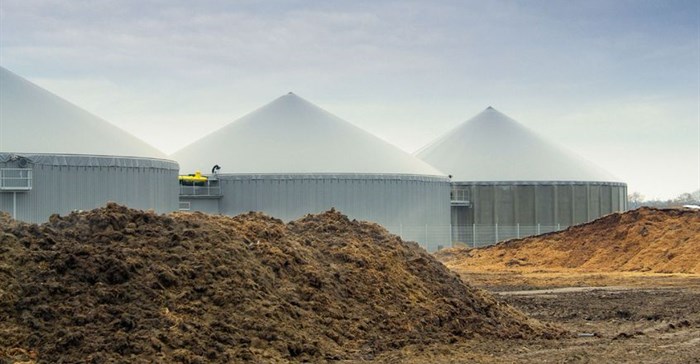The Department of Environmental Affairs and its partners recently conducted the Biogas Report which examines the potential biogas has as a source of transport based on the relevant waste sources in the country.
From these findings the total biogas potential from sources, captured within South Africa’s biogas inventory, is around three million normal cubic meters per day. The interesting part is that with the majority share of 38% of the total volume, the municipal solid waste (MSW) sector is the largest contributor to the country’s biogas potential.
Prof. Suzan Oelofse, president of the Institute of Waste Management of Southern Africa (IWMSA), explains that this information serves as a clear indicator that South Africa has the potential to successfully incorporate waste-to-energy (WtE) initiatives; however, she cautions that WtE should not be the primary driver for implementing alternative waste management options. Waste is a resource and therefore the economic benefit that can be derived from waste should be maximised.
Characterisation of waste
She highlights that to implement successful biogas WtE programmes relies on effective MSW characterisation. The characterisation of waste allows us to evaluate the country’s MSW and highlight important indicators such as appropriate technologies that address discrete segments of the waste streams; accurate decision support regarding the best management option for different materials or waste streams; material flow modelling and facility size; and potential recycling and composting costs.
“Biogas WtE extraction technologies are often waste stream specific as each stream has different energy potential depending on its composition.” says Oelofse. “Decisions on which technology will fit best to each waste stream needs be based on sound evidence,” she adds.
The Biogas Report indicates that the extraction of biogas as part of a WtE programme holds additional high-level strategic benefits for the country as an alternative transport fuel, such as:
- Economic/financial - utilising biogas for the generation of electricity could provide a 240 to 320MW capacity to the strained South African electricity grid.
- Environmental - biogas would reduce the impact on air quality in urban areas.
- Socio-economic - the upgrading/compression of raw biogas for transport could result in one to two additional jobs per sizeable facility, as well as jobs created related to infrastructure upgrades.
- Infrastructural development - incorporating biogas extraction will lead to the development of the virtually non-existent compressed biogas infrastucture.
Due to the fact that a number of sources within the MSW sector are among the ten largest potential biogas point sources identified in the Biogas Report, and controlled by local governmental municipalities, it can be concluded that the extraction of biogas through WtE programmes can be implemented on a large-scale within the country as the South African government has direct control of the majority share.
“Biogas offers the potential to slim the amount of organic waste ending up at landfills. By putting into place strategic WtE programmes nationwide, it also helps improve the effective utilisation of MSW,” concludes Oelofse.


































